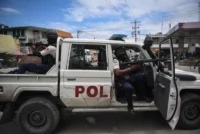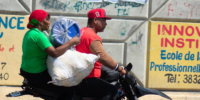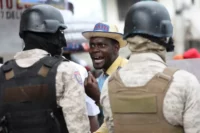
Haiti on the Precipice
On Thursday, Ariel Henry formally resigned as prime minister of Haiti. Few were grateful for his service. Over thirty-two months, the longest premiership since 1987, Henry presided over a country where life grew steadily worse. For the past five years armed groups had terrorized the capital, Port-au-Prince; in January they intensified their assault. On February 29 they united forces and launched a full-scale uprising: they engineered two prison breaks and freed some 4,700 prisoners, engaged in firefights with the outgunned national police, shut down the airport, torched commissariats, and attacked banks and private homes.
When the uprising began Henry was away in Nairobi finalizing the terms of a foreign intervention, blessed by the United Nations and brokered by the United States.… Seguir leyendo »



















